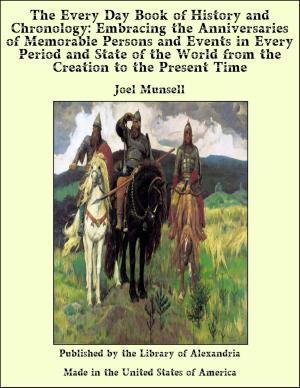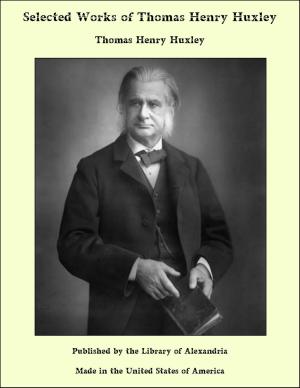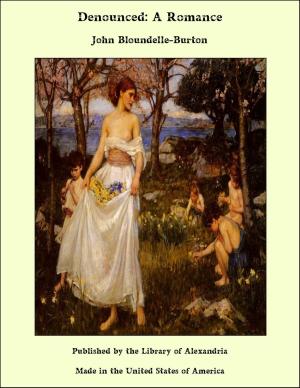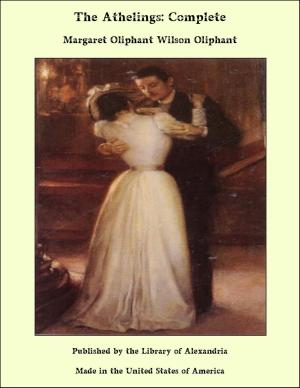| Author: | William Nathaniel Harben | ISBN: | 9781465623362 |
| Publisher: | Library of Alexandria | Publication: | March 8, 2015 |
| Imprint: | Language: | English |
| Author: | William Nathaniel Harben |
| ISBN: | 9781465623362 |
| Publisher: | Library of Alexandria |
| Publication: | March 8, 2015 |
| Imprint: | |
| Language: | English |
Ann Boyd Stood at the open door of her corn-house, a square, one-storied hut made of the trunks of young pine-trees, the bark of which, being worm-eaten, was crumbling from the smooth hard-wood. She had a tin pail on her arm, and was selecting "nubbins" for her cow from the great heap of husked corn which, like a mound of golden nuggets, lay within. The strong-jawed animal could crunch the dwarfed ears, grain and corn together, when they were stirred into a mush made of wheat-bran and dish-water. Mrs. Boyd, although past fifty, showed certain signs of having been a good-looking woman. Her features were regular, but her once slight and erect figure was now heavy, and bent as if from toil. Her hair, which in her youth had been a luxuriant golden brown, was now thinner and liberally streaked with gray. From her eyes deep wrinkles diverged, and the corners of her firm mouth were drawn downward. Her face, even in repose, wore an almost constant frown, and this habit had deeply gashed her forehead with lines that deepened when she was angry. With her pail on her arm, she was turning back towards her cottage, which stood about a hundred yards to the right, beneath the shade of two giant oaks, when she heard her name called from the main-travelled road, which led past her farm, on to Darley, ten miles away. "Oh, it's you, Mrs. Waycroft!" she exclaimed, without change of countenance, as the head and shoulders of a neighbor appeared above the rail-fence. "I couldn't imagine who it was calling me." "Yes, it was me," the woman said, as Mrs. Boyd reached the fence and rested her pail on the top rail. "I hain't seed you since I seed you at church, Sunday. I tried to get over yesterday, but was too busy with one thing and another." "I reckon you have had your hands full planting cotton," said Mrs. Boyd. "I didn't expect you; besides, I've had all I could do in my own field." "Yes, my boys have been hard at it," said Mrs. Waycroft. "I don't go to the field myself, like you do. I reckon I ain't hardy enough, but keeping things for them to eat and the house in order takes all my time." "I reckon," said Mrs. Boyd, studying the woman's face closely under the faded black poke-bonnet—"I reckon you've got something to tell me. You generally have. I wish I could not care a snap of the finger what folks say, but I'm only a natural woman. I want to hear things sometimes when I know they will make me so mad that I won't eat a bite for days." Mrs. Waycroft looked down at the ground. "Well," she began, "I reckon you know thar would be considerable talk after what happened at meeting Sunday. You know a thing like that naturally would stir up a quiet community like this." "Yes, when I think of it I can see there would be enough said, but I'm used to being the chief subject of idle talk. I've had twenty odd years of it, Mary Waycroft, though this public row was rather unexpected. I didn't look for abuse from the very pulpit in God's house, if it is His. I didn't know you were there. I didn't know a friendly soul was nigh." "Yes, I was there clean through from the opening hymn. A bolt from heaven on a sunny day couldn't have astonished me more than I was when you come in and walked straight up the middle aisle, and sat down just as if you'd been coming there regular for all them years. I reckon you had your own private reasons for making the break." "Yes, I did." The wrinkled mouth of the speaker twitched nervously. "I'd been thinking it out, Mrs. Waycroft, for a long time and trying to pray over it, and at last I come to the conclusion that if I didn't go to church like the rest, it was an open admission that I acknowledged myself worse than others, and so I determined to go—I determined to go if it killed me." "And to think you was rewarded that way!" answered Mrs. Waycroft; "it's a shame! Ann Boyd, it's a dirty shame!"
Ann Boyd Stood at the open door of her corn-house, a square, one-storied hut made of the trunks of young pine-trees, the bark of which, being worm-eaten, was crumbling from the smooth hard-wood. She had a tin pail on her arm, and was selecting "nubbins" for her cow from the great heap of husked corn which, like a mound of golden nuggets, lay within. The strong-jawed animal could crunch the dwarfed ears, grain and corn together, when they were stirred into a mush made of wheat-bran and dish-water. Mrs. Boyd, although past fifty, showed certain signs of having been a good-looking woman. Her features were regular, but her once slight and erect figure was now heavy, and bent as if from toil. Her hair, which in her youth had been a luxuriant golden brown, was now thinner and liberally streaked with gray. From her eyes deep wrinkles diverged, and the corners of her firm mouth were drawn downward. Her face, even in repose, wore an almost constant frown, and this habit had deeply gashed her forehead with lines that deepened when she was angry. With her pail on her arm, she was turning back towards her cottage, which stood about a hundred yards to the right, beneath the shade of two giant oaks, when she heard her name called from the main-travelled road, which led past her farm, on to Darley, ten miles away. "Oh, it's you, Mrs. Waycroft!" she exclaimed, without change of countenance, as the head and shoulders of a neighbor appeared above the rail-fence. "I couldn't imagine who it was calling me." "Yes, it was me," the woman said, as Mrs. Boyd reached the fence and rested her pail on the top rail. "I hain't seed you since I seed you at church, Sunday. I tried to get over yesterday, but was too busy with one thing and another." "I reckon you have had your hands full planting cotton," said Mrs. Boyd. "I didn't expect you; besides, I've had all I could do in my own field." "Yes, my boys have been hard at it," said Mrs. Waycroft. "I don't go to the field myself, like you do. I reckon I ain't hardy enough, but keeping things for them to eat and the house in order takes all my time." "I reckon," said Mrs. Boyd, studying the woman's face closely under the faded black poke-bonnet—"I reckon you've got something to tell me. You generally have. I wish I could not care a snap of the finger what folks say, but I'm only a natural woman. I want to hear things sometimes when I know they will make me so mad that I won't eat a bite for days." Mrs. Waycroft looked down at the ground. "Well," she began, "I reckon you know thar would be considerable talk after what happened at meeting Sunday. You know a thing like that naturally would stir up a quiet community like this." "Yes, when I think of it I can see there would be enough said, but I'm used to being the chief subject of idle talk. I've had twenty odd years of it, Mary Waycroft, though this public row was rather unexpected. I didn't look for abuse from the very pulpit in God's house, if it is His. I didn't know you were there. I didn't know a friendly soul was nigh." "Yes, I was there clean through from the opening hymn. A bolt from heaven on a sunny day couldn't have astonished me more than I was when you come in and walked straight up the middle aisle, and sat down just as if you'd been coming there regular for all them years. I reckon you had your own private reasons for making the break." "Yes, I did." The wrinkled mouth of the speaker twitched nervously. "I'd been thinking it out, Mrs. Waycroft, for a long time and trying to pray over it, and at last I come to the conclusion that if I didn't go to church like the rest, it was an open admission that I acknowledged myself worse than others, and so I determined to go—I determined to go if it killed me." "And to think you was rewarded that way!" answered Mrs. Waycroft; "it's a shame! Ann Boyd, it's a dirty shame!"















